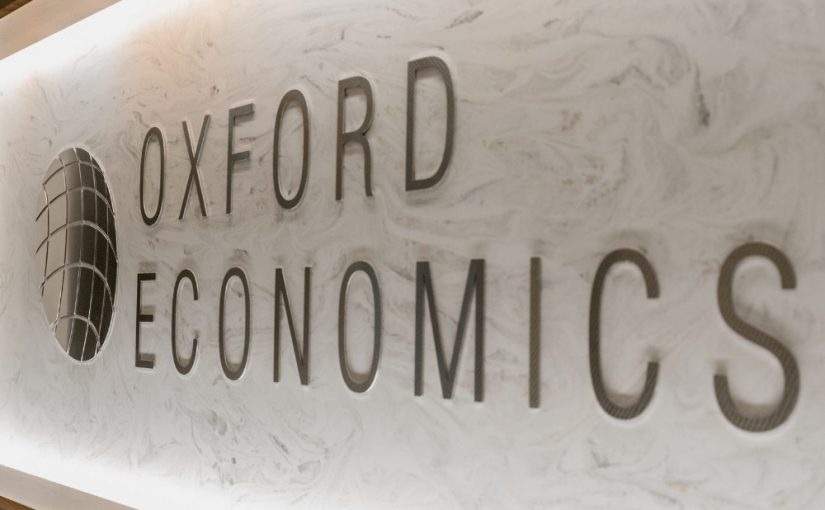Mozambique: President highlights 'controlled inflation and robust reserves' at central bank's 50th ...
Mozambique: Economy improves, not enough to change rating – consultants

File photo: Oxford Economics
Oxford Economics said on Wednesday that developments in Mozambique’s economy were positive but still not enough to convince financial rating agencies to upgrade the country’s rating.
“Despite the positive economic outlook due to the development of natural gas projects and fiscal consolidation efforts under the International Monetary Fund (IMF) programme, the government’s ability to service its commercial debt remains a concern due to the high level of debt, weak governance and security problems,” the analysts write.
In a commentary on Monday’s decision by Fitch Ratings to maintain its assessment of Mozambique’s credit quality at CCC+, the African department of British consultancy Oxford Economics wrote that “there have been positive developments in credit metrics over the last 12 months, but not enough to override current concerns, hence the maintenance of the rating since the last quarter of 2022”.
Financial rating agency Fitch Ratings decided on Monday to keep Mozambique’s credit rating at CCC+, three levels above default, but still below the investment recommendation, considering that “substantial risks” continue to exist.
Mozambique’s rating “reflects high levels of public debt, weak public finance management, low GDP per capita, weak external finances, poor governance indicators and a challenging security situation,” the analysts wrote in the note.
In the announcement of the decision, Fitch Ratings writes that “the robust medium-term growth prospects, supported by the development of the liquefied natural gas sector, the $456 million (€423 million) agreement with the International Monetary Fund (IMF) in 2022 and the concessional nature of the external public debt, with low debt service costs, provide some support for the creditworthiness.”
READ: Fitch affirms Mozambique at ‘CCC+’
Mozambique is expected to grow by an average of 4.5% this year and next, with inflation falling from 7.3% last year to 5.9% this year, the deficit improving from 3.2% of GDP in 2023 to 2.6% this year, and public debt falling from 96.4% at the end of last year to 93.6% this year and 90.2% in 2025.
Despite this, the analysts note, Mozambique “remains at high risk of over-indebtedness, due to its large debt burden in relation to the small size of the economy”.
The country has managed to service its external debt on time but “has missed payments on long-term domestic debt and bilateral debt, which raises concerns about the authorities’ management of public finances,” the analysts write.
The violence in Cabo Delgado, they also note, has not disappeared, and there could be a resurgence of attacks in the run-up to the October elections, which has the potential to lead to further postponements in Africa’s largest natural gas exploration project.
“Investors are concerned about further delays in these projects, as gas revenues are essential for the future of Mozambique’s public finances,” they conclude in the note.












Leave a Reply
Be the First to Comment!
You must be logged in to post a comment.
You must be logged in to post a comment.